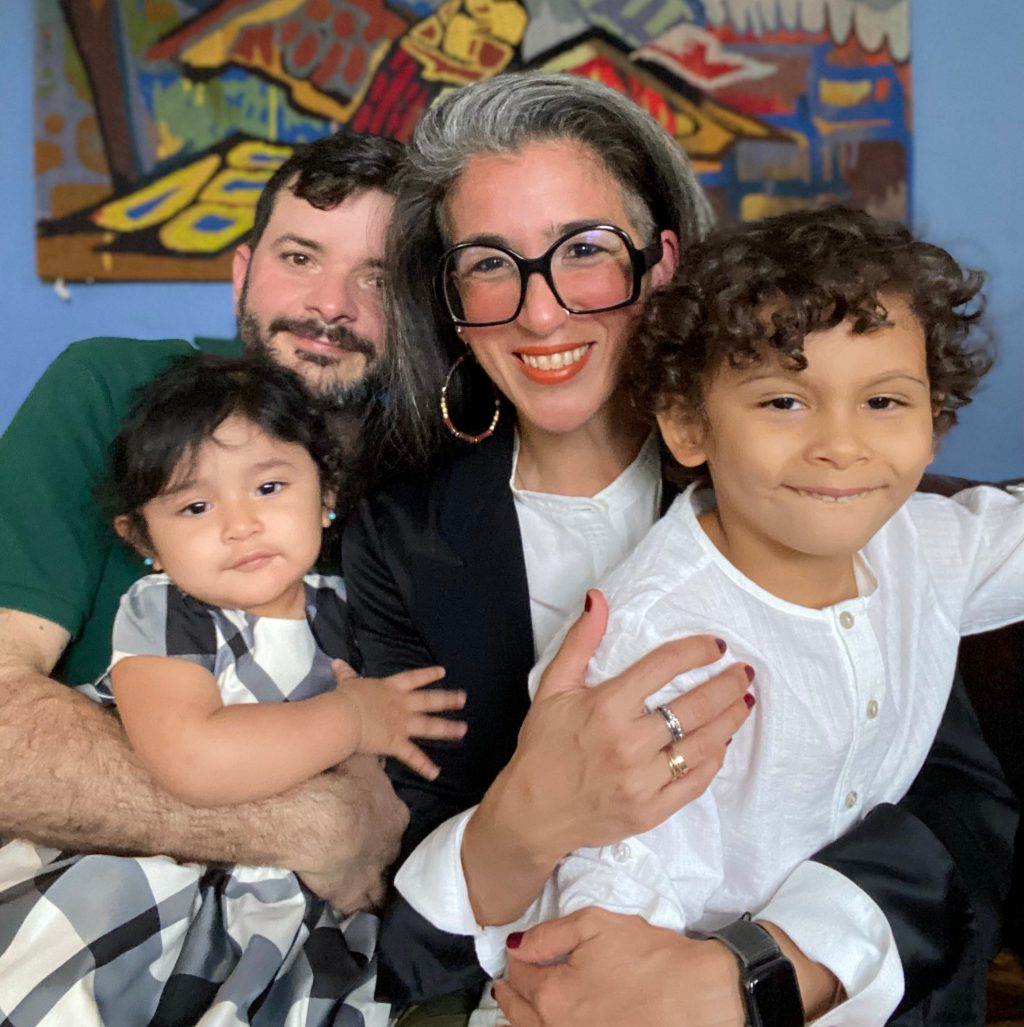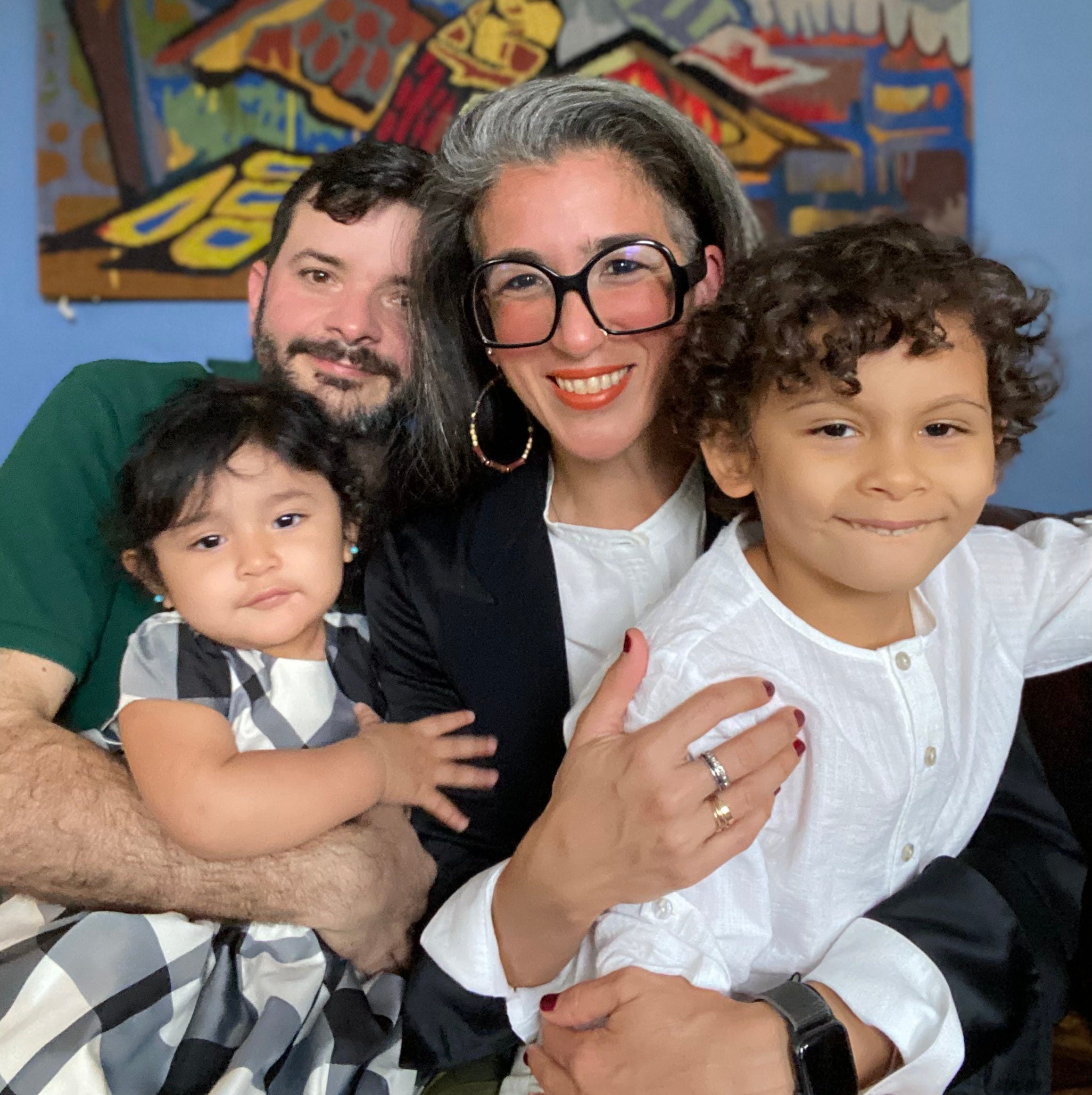
- Working, homeschooling, and caregiving during a pandemic have many parents beyond their wits' end.
- The toll is visible, leading to gray hair, dark circles, and weight gain in some.
- Five working moms shared photos with Insider from before the pandemic and now.
Early in the pandemic, Vanessa Garcia and her husband, Ignacio, adopted their second child — a 2-day-old baby they met with gloves and masks on. When theaters went dark, Garcia, a Miami-based writer and producer, no longer had a home for the immersive theater piece she'd been working on. Meanwhile, Ignacio had just left his job — and with it, his clients and salary.
The family spent 2020 and 2021 fiercely protecting both their kids and Garcia's grandparents, then 98 and 90. "It was — a lot," Garcia, 42, told Insider.
"A lot" is an understatement for most Americans living through the pandemic and especially parents juggling careers, childcare, homeschooling, and, in Garcia's case, caregiving for older relatives. A survey from spring 2020 showed parents were already markedly more stressed than nonparents, and more recent research and anecdotes use more desperate phrases like "rock bottom," "rage," "mental-health crisis," and "crushing pressure" when discussing modern child-rearing in the US.
Parents with kids under 5 — Garcia's are 2 and 4 — "are in a special kind of hell right now," Anya Kamenetz wrote for NPR, since the tots can't get vaccinated and day cares keep shutting down. The situation is also dire for many Black and single parents.
"The night sometimes does feel eternal, but it never is. No matter what, it comes to an end," Garcia, who's Cuban American, told Insider, referencing the Cuban activist Oswaldo Payá. "I think, however, if you would have told me how dark some of the moments would get, how much it felt like the world was going to end at times, I might not have believed that. That deep dark question I ask myself: Is this what my children will inherit?"
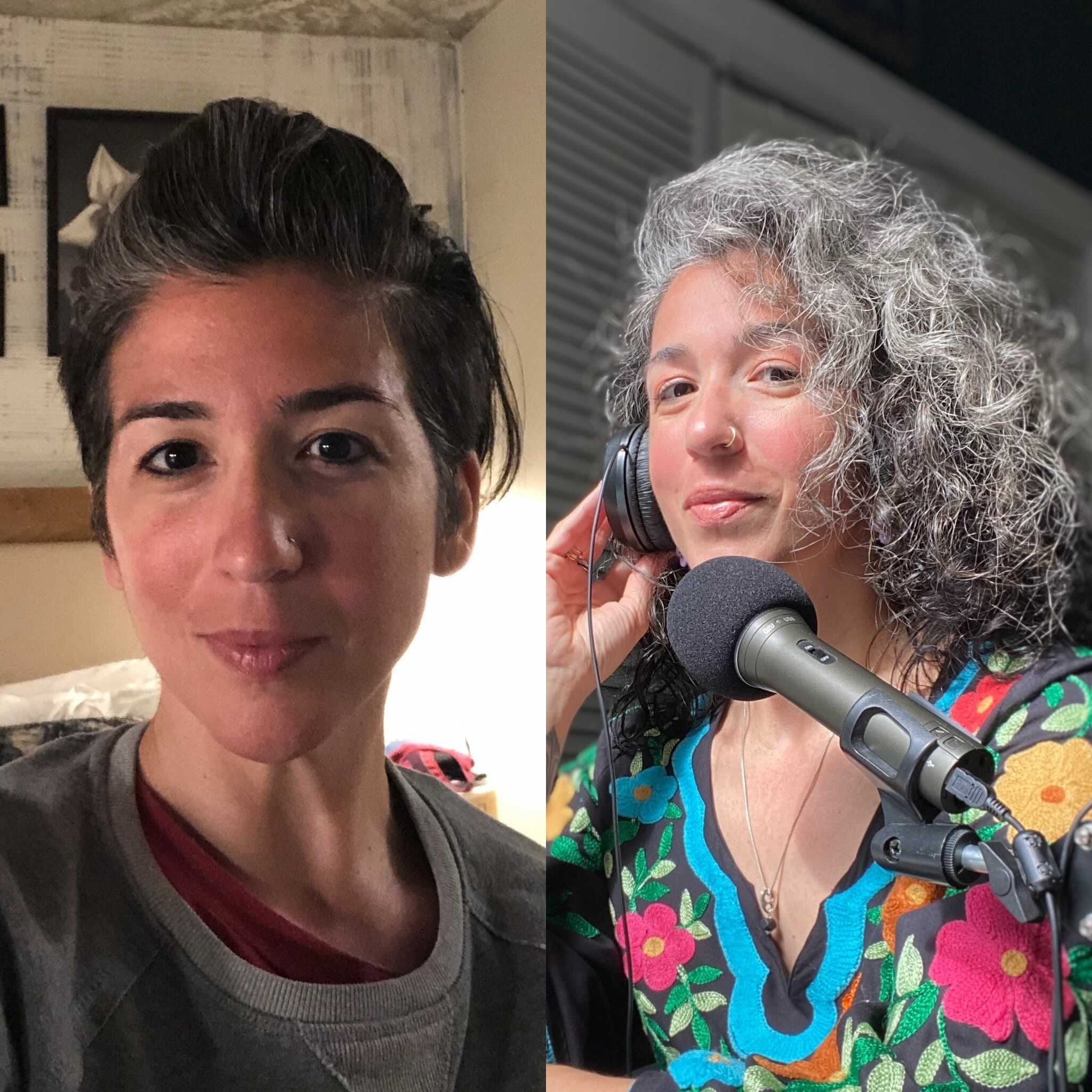
All that takes a toll on how you feel and look. Chronic stress accelerates the development of under-eye bags, wrinkles, and indeed gray hair. Shuttered gyms, impossible schedules, and changed priorities can mean outgrowing your pants and saying to hell with beauty treatments.
It's not all bad. For Garcia, letting her hair go from dark, short, and styled, to gray, curly, and free "felt freeing and like paradoxically I had control of allowing that particular wilderness to be," she said.
Four other working moms shared how the pandemic has changed them, inside and out, with Insider.
Caroline Broomell, a 45-year-old nurse near Baltimore

In March 2020, Broomell had just lost 15 pounds and felt great. Her two daughters, then in seventh grade and kindergarten, were in school, and Broomell had returned to work full time. "I felt like I was finally getting control of my life," she told Insider. "I was wrong."
Broomell, whose husband is also a nurse, worked on the front lines during the day, then became a teacher to her youngest at night.
"To be at work, at the kind of job where one rarely gets a lunch or a restroom break, dealing with a major health crisis while the kids are at home and trying to keep them safe and mentally healthy — it's a different kind of distraction" than working from home with kids, she said. "I felt like I had two jobs, mom and nurse, and they were incompatible with each other."
On top of that, Broomell had to navigate coparenting with her ex-husband, the father of her oldest whose side is mostly anti-vaccine and anti-mask. "We have been constantly navigating exposure risks and her normal teenage desire to be with her friends," said Broomell, adding that her daughter is now vaccinated.
Broomell's well-being took a back seat. "I gained 30 pounds. I let go of so much of myself. My anxiety was constantly through the roof, and the to-do list was never done," she said.
She's doing better now, having taken a new job closer where she can work from home two days a week. She just visited a doctor for a weight-loss plan, anti-anxiety medication, and a therapist referral. "Finding the time for that little step has been overwhelming," she said.
Broomell is no longer wasting energy on petty concerns. "I try to look put-together, but I worry so much less about what people are thinking or about what I'm supposed to be doing and just do what I want," she said.
Lauren Manaker, a 41-year-old dietitian and writer in Charleston, South Carolina
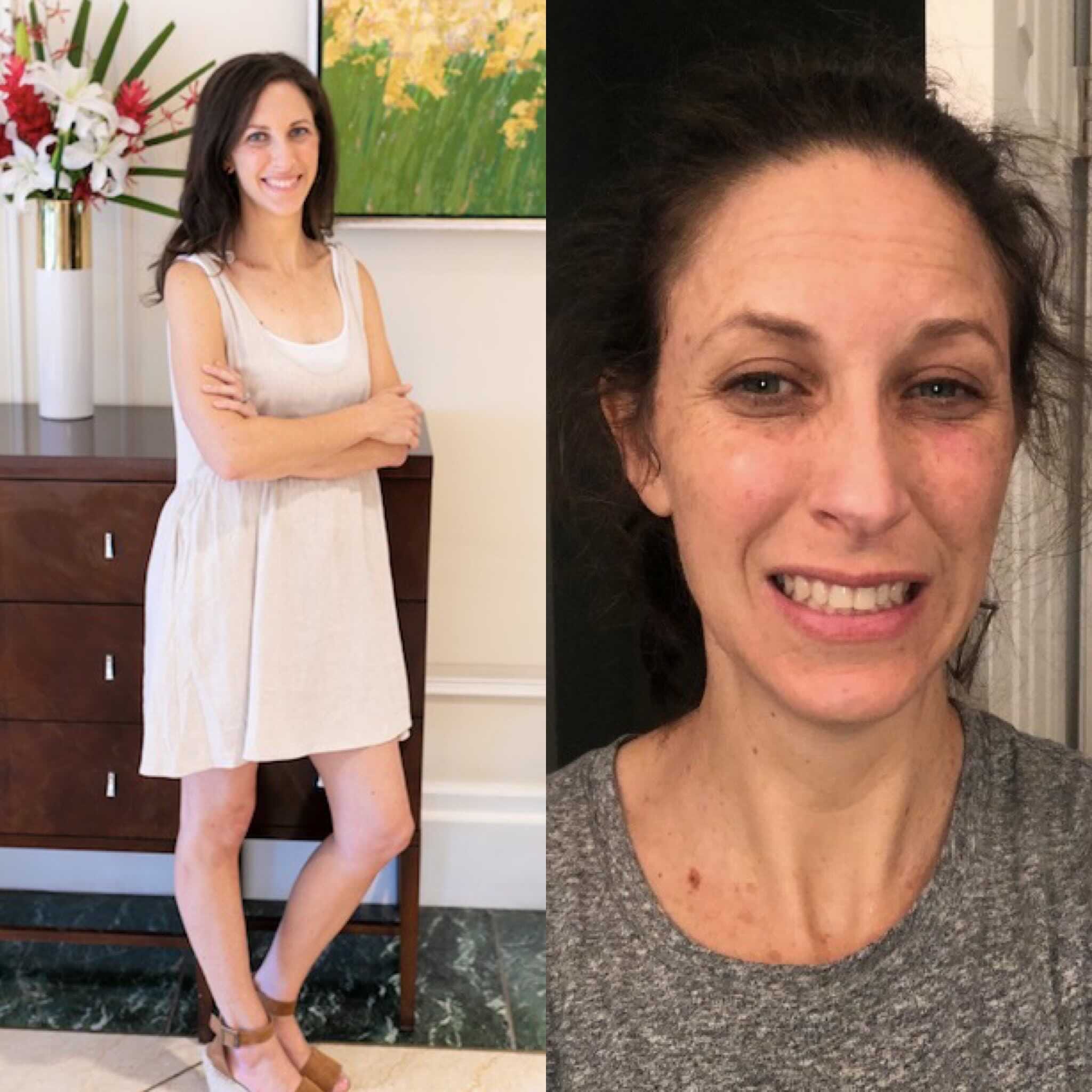
Manaker, who has a 6-year-old with her husband, told Insider her pre-pandemic self "wouldn't believe that she can squeeze any more in than she already was." She took the "after" photo around midnight to show her husband what she looks like after a day working, parenting, and surviving.
Manaker said photos don't capture loneliness. "Between work and coparenting, certain things had to fall to the wayside. Friendships suffered because we were all too busy," she said.
Even as a health professional, Manaker had to relearn the importance of self-care, which she said was "the first thing to go." "It took me some time to realize how important exercise, sleep, etc. is and how if I neglect myself, my whole world will crumble," she said.
Ashley Lane, 35-year-old managing editor in San Francisco
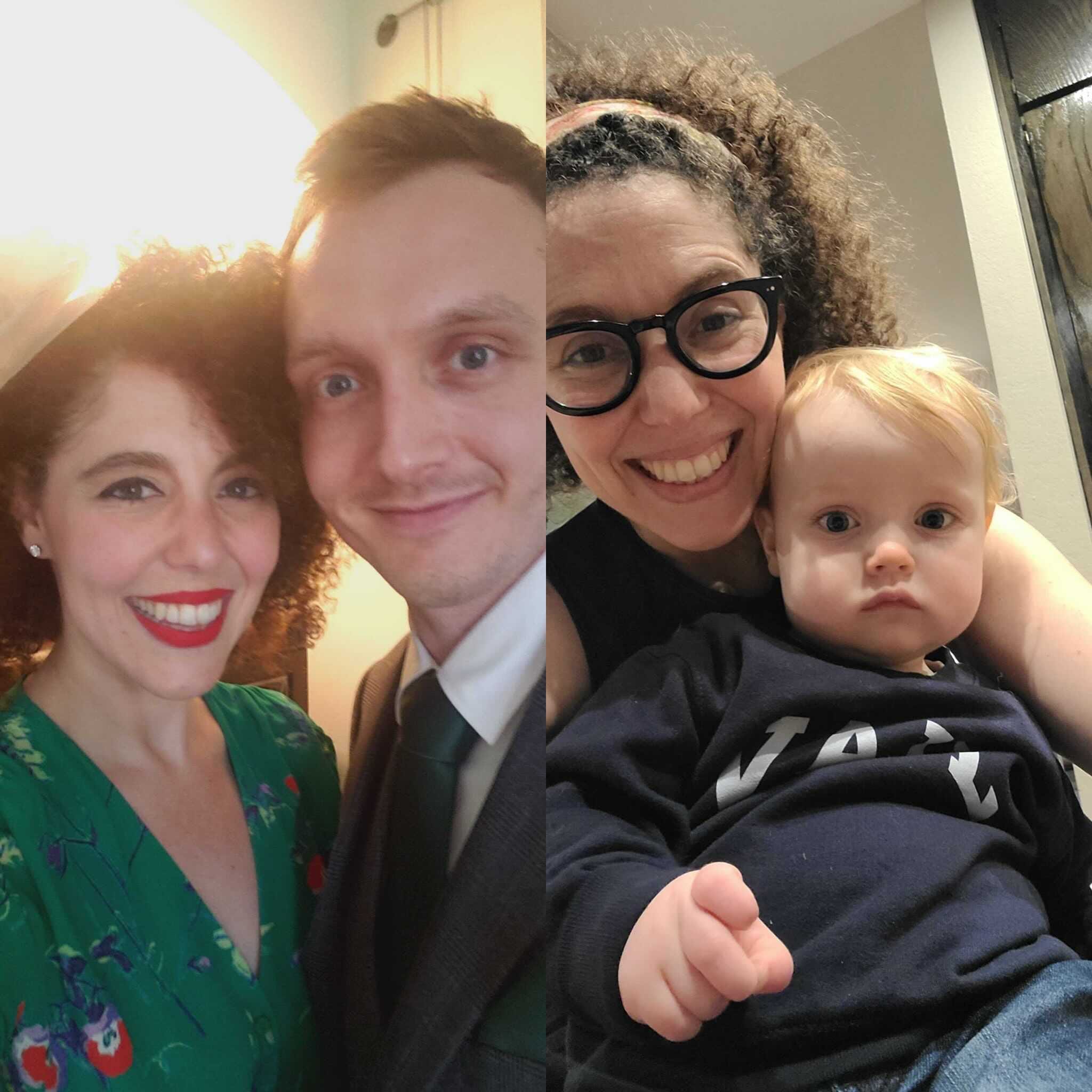
Lane, who works at Insider and has a 17-month-old, said she's the most exhausted she's been in her life.
"I know being a parent is inherently exhausting, but there's no doubt the pandemic has compounded this," she said. "The need to be hypervigilant about how our decisions can have a direct impact on our daughter's health means I'm constantly on high alert. It's calculating if going to the grocery store or meeting with that friend is going to have a negative outcome. After two-plus years of this, it's definitely taken a toll at times."
Lane and her husband don't have immediate family nearby, and most of those relatives haven't met their daughter. The experience has driven home how American parents are left to fend for themselves. "There is nowhere near enough support, on a nationwide level, for folks with children — especially for primary caregivers," Lane said.
Nicole Dahl, a 39-year-old vice president of creative and strategy for a hotel in Tucson, Arizona
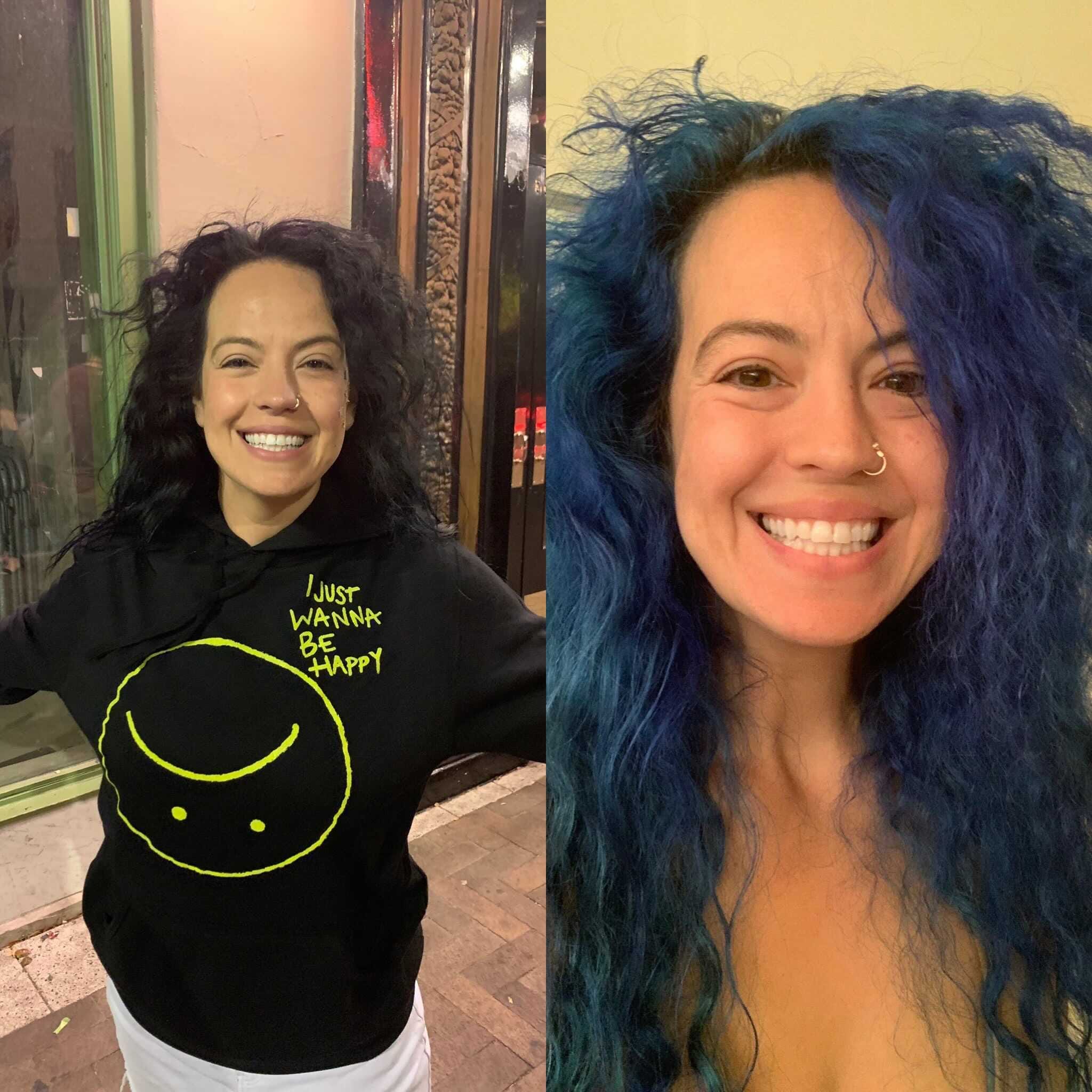
Dahl, whose kids are 5 and 7, calls her pre-pandemic self "young, full of energy, and hopeful." She had "two pesky white hairs" she could easily conceal and went to the gym daily. Over the past two years, her hair turned 50% white, which Dahl chalks up to stress.
"The stress of impending death and doom, the stress of keeping a hospitality company afloat during a plague, the stress of placing and keeping a fortress of protection around my kids to best allow them to develop emotionally, spiritually, and intellectually while the world is a dumpster fire, the stress of preserving a marriage when date nights, babysitters, and grandparents are off-limits," she said. "So, yeah, blue hair."
Dahl no longer wears makeup or goes to the gym; she's gained 10 pounds.
"Why has no one stood up and said, 'Hey, maybe we should take a step back and reevaluate all of this?'" she said. "Our society and the way we raise children was not designed for a pandemic and all the other terrible circumstances we are facing. Could we maybe chill out on long division and instead integrate mindfulness in school?"

